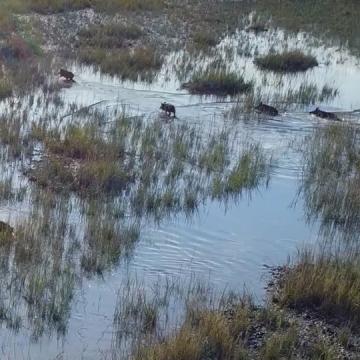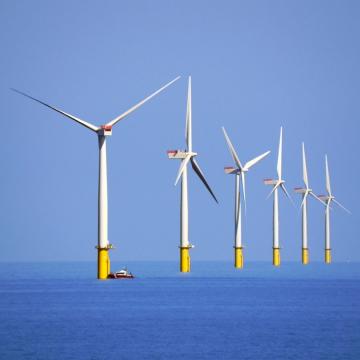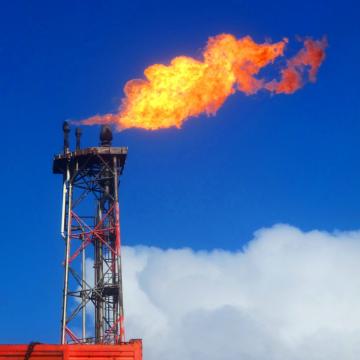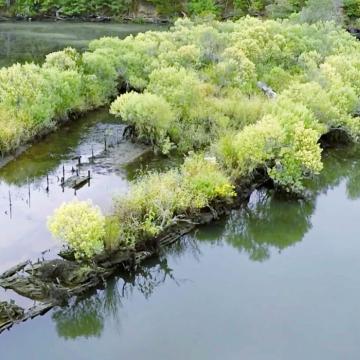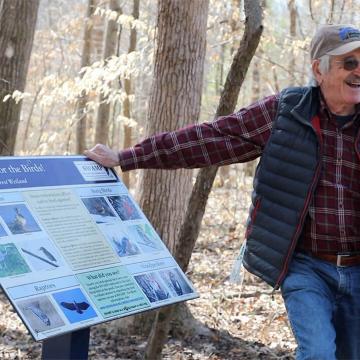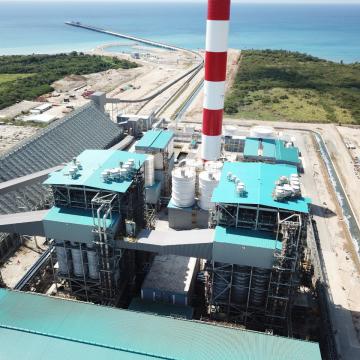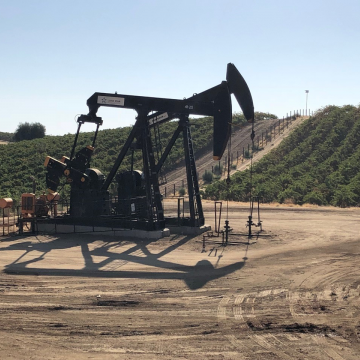-
NewsProducing energy from fossil fuels uses or contaminated much more water than previously estimated, a new book by two Duke researchers shows.
-
NewsCoastal marshes that have been invaded by feral hogs recover from disturbances up to three times slower than non-invaded marshes and are far less resilient to sea-level rise, extreme drought and other impacts of climate change.
-
NewsDuke University has received a $7.5 million grant from the U.S. Department of Energy to assess the risks offshore wind energy development along the East Coast may pose to birds, bats and marine mammals.
-
NewsLori Bennear and Tim Johnson discussed two bills under consideration in Congress and their potential impact on the reduction of carbon emissions and more.
-
NewsReducing emissions of methane, a short-lived but super-potent greenhouse gas, is the most cost-effective way to slow the rate of Earth’s warming in coming decades, a new United Nations report finds.
-
NewsJoel Dunn (MEM’04) Helps Create America’s First National Marine Sanctuary in 20 Years
-
NewsRecent Duke grad Alexandra DiGiacomo (BS ’20) is using drones to better understand how rising seas, warming waters and rapid development are killing protective saltmarshes at our coast, and what can be done to reverse the losses.
-
NewsSixteen years after the restoration of Upper Sandy Creek began, hundreds of species, some rare, now call the once-heavily eroded and degraded stream home, and nitrogen pollution flowing off Duke’s campus into downstream waters has been slashed by 75%.
-
NewsWhen it comes to storing carbon during prolonged periods of drought and heat, wooded peatlands at low-latitudes have a three- to five-fold advantage over other peatlands. An ancient class of slow-growing fungi is the reason why.
-
NewsDuke University researchers have found high levels of toxic heavy metals in coal ash from the Dominican Republic’s largest coal-fired power plant.
-
NewsMassive power outages in Texas brought on by a historic freeze could be avoided in the future if the state no longer isolates its power grid from other states, among other steps, according to Duke University experts.
-
NewsSalt marshes, seagrass meadows and other coastal ecosystems are in rapid decline around the world. Restoring them is expensive and often unsuccessful. But an international team of researchers has discovered a way to sharply increase the odds of success by using biodegradable mats.
-
NewsReusing low-saline oilfield water mixed with surface water to irrigate farms in the Cawelo Water District of California does not pose major health risks, as some opponents of the practice have feared, a study led by Duke University and RTI International researchers finds.
-
NewsHigh-intensity fires can destroy peat bogs and cause them to emit huge amounts of their stored carbon into the atmosphere as greenhouse gases, but a new Duke University study finds low-severity fires spark the opposite outcome.
-
NewsA new $2.44 million grant from the U.S. Department of Energy’s Advanced Research Projects Agency-Energy (ARPA-E) will support a Duke University-led initiative to help utilities and wholesale electricity markets improve their efficiency and reliability while reducing emissions and costs, at a time of needed transformations to tackle climate change.

